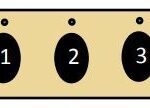Are you passionate about helping people breathe easier? A career in respiratory care might be your perfect calling. Respiratory therapists are essential healthcare professionals who specialize in the diagnosis, treatment, and management of patients with breathing and cardiopulmonary disorders. To embark on this fulfilling career path, enrolling in a quality Respiratory Care Program is the first crucial step.
What is a Respiratory Care Program?
A respiratory care program is an educational curriculum designed to equip students with the knowledge, skills, and clinical experience necessary to become competent respiratory therapists. These programs combine classroom instruction with hands-on training in simulated and real-world clinical settings. Students learn about:
- Anatomy and Physiology of the Respiratory System: Understanding how the lungs and respiratory system function in health and disease.
- Pathophysiology of Respiratory Diseases: Learning about conditions like asthma, COPD, pneumonia, cystic fibrosis, and acute respiratory distress syndrome (ARDS).
- Patient Assessment and Monitoring: Developing skills to evaluate patients’ respiratory status, interpret diagnostic tests, and monitor treatment effectiveness.
- Therapeutic Interventions: Mastering techniques like oxygen therapy, mechanical ventilation, airway management, aerosol medication delivery, and chest physiotherapy.
- Pharmacology: Understanding medications used in respiratory care and their effects.
- Critical Care and Life Support: Learning to manage patients in intensive care units and emergency situations.
Graduates of accredited respiratory care programs are eligible to take the National Board for Respiratory Care (NBRC) credentialing exams to become Registered Respiratory Therapists (RRTs), a standard of professional excellence recognized nationwide.
Why Accreditation Matters for Your Respiratory Care Education
Choosing an accredited respiratory care program is not just a preference, it’s a necessity for a successful and rewarding career. Accreditation, particularly from the Commission on Accreditation for Respiratory Care (CoARC), signifies that a program has met rigorous standards for quality and effectiveness. Here’s why accreditation is critically important:
- Quality Education: CoARC accreditation ensures that the program curriculum, faculty, resources, and clinical training meet high educational standards. This means you’ll receive a comprehensive and up-to-date education that prepares you for the complexities of respiratory care.
- Eligibility for Credentialing: Graduation from a CoARC-accredited program is a mandatory requirement to be eligible to sit for the NBRC exams (Therapist Multiple-Choice Examination and Clinical Simulation Examination) to become a Registered Respiratory Therapist (RRT). Without graduating from an accredited program, you cannot become credentialed as an RRT, which is often essential for employment and career advancement.
- Career Advancement Opportunities: Employers overwhelmingly prefer and often require candidates to be graduates of accredited programs and to hold the RRT credential. Accreditation signals to employers that you have received a quality education and are prepared to provide competent and safe respiratory care.
- Licensure Requirements: Many states require respiratory therapists to be licensed or certified. Accreditation often plays a role in meeting state licensure requirements. Graduating from a CoARC accredited program can streamline the licensure process.
- Program Improvement and Accountability: Accreditation is an ongoing process that requires programs to continuously evaluate and improve their quality. This commitment to quality ensures that accredited programs remain relevant and responsive to the evolving needs of the healthcare field.
Exploring Respiratory Care Program Options
Respiratory care programs are offered at various degree levels to accommodate different career goals and educational backgrounds:
- Associate’s Degree Programs (AAS, AS): These programs are typically two years in length and provide entry into the profession as respiratory therapists. Associate’s degrees are a common pathway to becoming a practicing respiratory therapist and are offered at community colleges and technical schools.
- Bachelor’s Degree Programs (BS, BSRT, BSHS): Bachelor’s programs offer a more in-depth education in respiratory care, often including advanced coursework in leadership, research, and specialized areas of respiratory therapy. A Bachelor’s degree can enhance career advancement opportunities and may be preferred for roles in management, education, or specialized clinical areas. Some Bachelor’s programs are also designed as “degree advancement” programs for practicing respiratory therapists who hold an Associate’s degree and want to further their education.
- Master’s Degree Programs (MS, MHS): Master’s programs in respiratory care are designed for advanced practice, leadership, education, or research roles. These programs are for individuals seeking to become clinical specialists, researchers, educators, or leaders in the field of respiratory care.
Entry into the Profession vs. Degree Advancement Programs:
- Entry into the Profession Programs: These programs are designed for individuals who are new to the field of respiratory care and are seeking initial licensure and credentialing. They are offered at the Associate’s, Bachelor’s and Master’s degree levels.
- Degree Advancement Programs: These programs are specifically designed for Registered Respiratory Therapists (RRTs) who already hold an Associate’s or Bachelor’s degree and are seeking to advance their education to the Bachelor’s or Master’s level. These programs often build upon existing knowledge and experience in respiratory care.
Finding Accredited Respiratory Care Programs
The Commission on Accreditation for Respiratory Care (CoARC) is the gold standard for accreditation of respiratory care programs in the United States. Their website, coarc.com, is the definitive resource for finding accredited respiratory care programs.
CoARC provides a publicly searchable program directory on their website where you can:
- Search for programs by location (state).
- Filter by degree type (Associate’s, Bachelor’s, Master’s).
- Identify the accreditation status of each program.
- Access program details and contact information.
By using the CoARC program directory, you can be confident that you are exploring educational programs that meet the highest standards and will prepare you for a successful career in respiratory care.
Conclusion
A respiratory care program is your gateway to a meaningful and in-demand healthcare profession. Choosing an accredited program is paramount to ensuring you receive a quality education, become eligible for professional credentialing, and enhance your career prospects. Take the first step towards your respiratory care career today by exploring the directory of accredited programs on the CoARC website and finding the program that best fits your aspirations. Your future patients will thank you for your expertise and dedication to helping them breathe easier.
